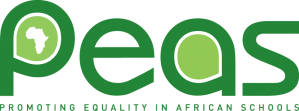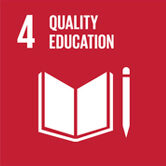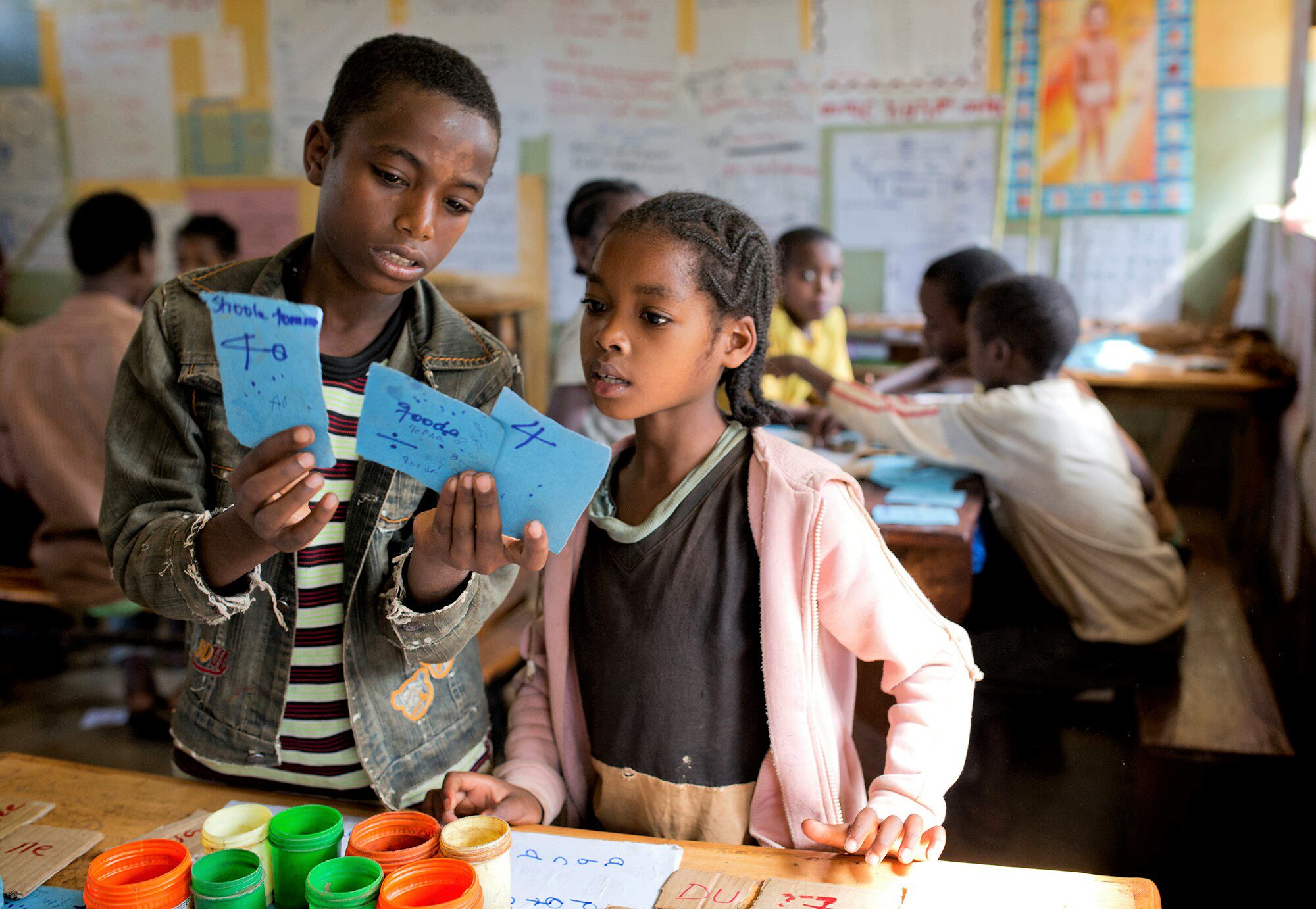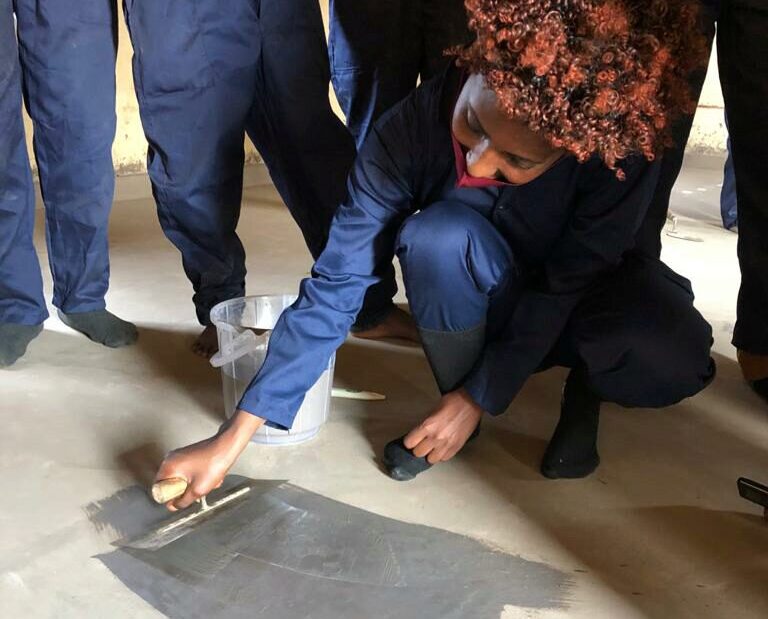
2021 Winner: PEAS (Promoting Equality in African Schools)
Promoting Equality in African Schools (PEAS) exists to expand access to sustainably delivered, quality secondary education across Africa, and works towards a world where all children can unlock their full potential. PEAS builds affordable and quality secondary schools in areas of Africa where, each year, hundreds of children complete primary school but have no secondary school available to them. They empower their school leaders and teachers to deliver great outcomes for students by providing them with ongoing support and mentorship. Overall, PEAS schools consistently out-perform national norms, in terms of both education quality and broadening access. To widen their impact, they proactively share what they have learned to help others build and run great schools.

Primary Area of Impact: Education
Geographic Area (Continent): Africa
Geographic Areas (Countries): Uganda, Zambia
Organizational Type: Non-Profit
Year Founded: 2008
Mission: To expand access to sustainably delivered, quality secondary education across Africa
Website: https://www.peas.org.uk/
Social Challenge
PEAS confronts the insufficient supply of secondary education in Africa. Secondary school enrollment is less than 30% in Uganda and 25% in Zambia. There are not enough school allotments available and steady population growth is putting pressure on already over-stretched systems. The secondary schools that do exist generally provide inadequate education quality, marked by teacher absenteeism, an overloaded curriculum, under-funding, and low teacher pedagogical skill levels and subject knowledge. There are also high levels of violence against children in many of these schools; a national-level Ugandan study found that 81% of children reported experiencing violence in school, with 68% of those children identifying teachers as the main perpetrator. Furthermore, the lack of free public secondary education in Uganda and Zambia means that the poorest families are excluded from participation in secondary education. This disproportionately affects girls, who suffer from higher dropout and lower transition rates.
.
UN Sustainable Development Goals
Leadership
To address the lack of secondary education available for African students, PEAS engages in direct impact work and has created 17,000 secondary places in 32 schools as of 2019. PEAS also works to strengthen education systems through its co-impact work by building and running exemplary schools in order to demonstrate best practices and to share these practices with other education providers, in partnership with other schools and local governments in Uganda and Zambia. In 2018, an external evaluation concluded that PEAS’ success in providing better quality education at a more competitive cost than other schools types can be attributed to (i) school leadership and vision, and strength of the management approach, (ii) teacher motivation and support, and (iii) strong focus on child protection practices. PEAS schools are substantially better-managed than other schools (correlated significantly with more learning), with school leaders and teachers receiving high-quality training and support. PEAS has also developed world-class child protection policies, procedures and programs to ensure that students are safe in PEAS schools, and to challenge attitudes that undermine child safeguarding in the wider community.
Impact
As of 2020, PEAS has successfully graduated nearly 40,000 students from inception in 2008, admitting 1.5x as many of the poorest students as do government schools in Uganda and serving more disadvantaged communities. The students have achieved vast learning progress, with PEAS students in Uganda making faster learning progress than their peers in other school types. For instance, in the 2019 national examinations in Uganda, PEAS students achieved 12% over the national average despite starting further behind. They also improved gender equity in education, with girls making up 55% of PEAS students in Zambia and 51% in Uganda. PEAS also has external evaluation data linking PEAS’ better child protection practices to improved learning outcomes. Additionally, PEAS schools are more cost-effective, spending significantly less per child in delivering education than government schools in Uganda.
Innovation
Unlike many other organizations or groups that focus on creating just a targeted program within schools, PEAS approaches the complete educational system to create solutions for delivering quality secondary education across Africa. PEAS focuses on supporting and empowering school leadership and improvement, which is an innovative approach in PEAS’ contexts. PEAS also continually designs and delivers new interventions through data-driven processes, using PEAS’ schools as “laboratories” for research and development. As such, PEAS codifies new best-practices for school management in low-resource settings. PEAS is also experimenting with innovative financing models so that PEAS schools can be locally-led and run independently of international aid. In 2020, 23 out of 28 PEAS schools in Uganda are already sustainable and cover their own operating costs every year.
Transferability
By empowering communities through local hires and in developing partnerships with local experts, the work at PEAS is sustainably transferable to local contexts, as evidenced by the replication of their school operating model and best practices across 28 schools in 21 districts in Uganda and in 4 schools across 2 regions in Zambia. PEAS also maintains a collaborative effort in co-creating and co-delivering with governments;, since 2018, PEAS has been working in partnership with Uganda’s Ministry of Education and Sport and Directorate of Education Standards to deliver their innovative school inspection/improvement process across 50 under-performing government schools in Uganda, incorporating local government priorities in the co-design of the programme. PEAS has also shared their child protection systems best practice with the Global Schools Forum to support the development of their child protection toolkit, and to Social Development Direct to feed into guidance for DFID’s Country Education Advisors.
Accomplishments
- Better Society Awards 2018, Partnership with an International Charity
- Social Enabler Programme 2017, Top 100 Global Social Enabler
- Charity Times Awards 2014, Rising CEO Star, PEAS CEO John Rendel
- The Charity Awards 2013, Overall Winner and Winner of the International Development Category
- Wise Awards 2013, Best International Aid and Development Award






